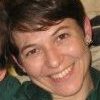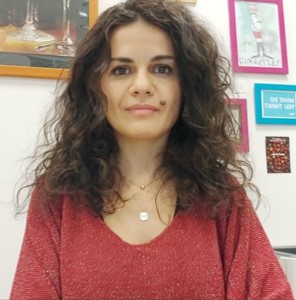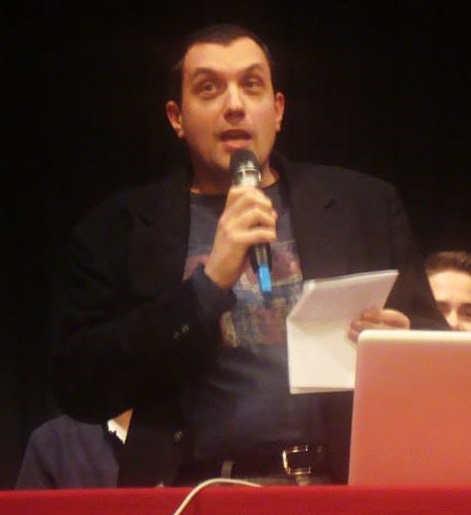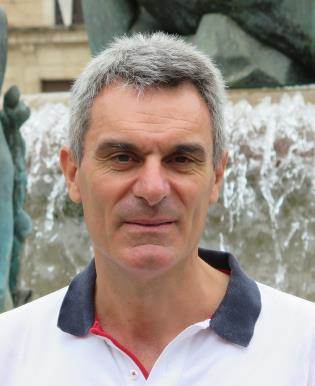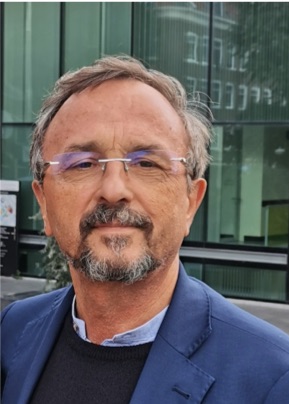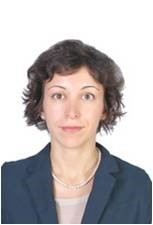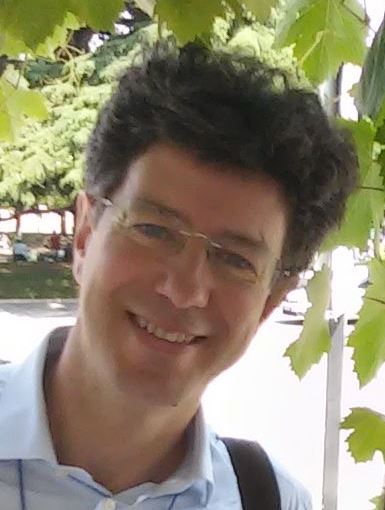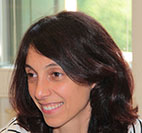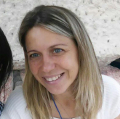Studying at the University of Verona
Here you can find information on the organisational aspects of the Programme, lecture timetables, learning activities and useful contact details for your time at the University, from enrolment to graduation.
Academic calendar
The academic calendar shows the deadlines and scheduled events that are relevant to students, teaching and technical-administrative staff of the University. Public holidays and University closures are also indicated. The academic year normally begins on 1 October each year and ends on 30 September of the following year.
Course calendar
The Academic Calendar sets out the degree programme lecture and exam timetables, as well as the relevant university closure dates..
| Period | From | To |
|---|---|---|
| I semestre | Oct 1, 2018 | Jan 31, 2019 |
| I semestre - 3° anno | Oct 29, 2018 | Jan 31, 2019 |
| II semestre | Mar 4, 2019 | Jun 14, 2019 |
| Session | From | To |
|---|---|---|
| Sessione invernale d'esame | Feb 1, 2019 | Feb 28, 2019 |
| Sessione estiva d'esame | Jun 17, 2019 | Jul 31, 2019 |
| Sessione autunnale d'esame | Sep 2, 2019 | Sep 30, 2019 |
| Session | From | To |
|---|---|---|
| Sessione di laurea estiva | Jul 19, 2019 | Jul 19, 2019 |
| Sessione di laurea autunnale | Nov 22, 2019 | Nov 22, 2019 |
| Sessione di laurea invernale | Mar 20, 2020 | Mar 20, 2020 |
| Period | From | To |
|---|---|---|
| Sospensione dell'attività didattica | Nov 2, 2018 | Nov 3, 2018 |
| Vacanze di Natale | Dec 24, 2018 | Jan 6, 2019 |
| Vacanze di Pasqua | Apr 19, 2019 | Apr 28, 2019 |
| Vacanze estive | Aug 5, 2019 | Aug 18, 2019 |
Exam calendar
Exam dates and rounds are managed by the relevant Science and Engineering Teaching and Student Services Unit.
To view all the exam sessions available, please use the Exam dashboard on ESSE3.
If you forgot your login details or have problems logging in, please contact the relevant IT HelpDesk, or check the login details recovery web page.
Should you have any doubts or questions, please check the Enrollment FAQs
Academic staff
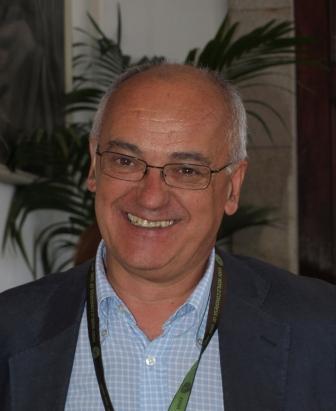
Boselli Maurizio
 maurizio.boselli@univr.it
maurizio.boselli@univr.it
 3478344185
3478344185
 lorenzo.meneghini@univr.it
lorenzo.meneghini@univr.it
 chiara.nardon@univr.it
chiara.nardon@univr.it
Sandri Marco
 marco.sandri@univr.it
marco.sandri@univr.it
Study Plan
The Study Plan includes all modules, teaching and learning activities that each student will need to undertake during their time at the University.
Please select your Study Plan based on your enrollment year.
1° Year
| Modules | Credits | TAF | SSD |
|---|
2° Year activated in the A.Y. 2019/2020
| Modules | Credits | TAF | SSD |
|---|
3° Year activated in the A.Y. 2020/2021
| Modules | Credits | TAF | SSD |
|---|
| Modules | Credits | TAF | SSD |
|---|
| Modules | Credits | TAF | SSD |
|---|
| Modules | Credits | TAF | SSD |
|---|
Legend | Type of training activity (TTA)
TAF (Type of Educational Activity) All courses and activities are classified into different types of educational activities, indicated by a letter.
Viticulture (2019/2020)
The teaching is organized as follows:
VITICOLTURA GENERALE
Credits
6
Period
I semestre
Academic staff
Maurizio Boselli
Learning outcomes
The course consists of two modules. The General viticulture module introduces to the knowledge of the cultivation of wine vine in the basic aspects related to taxonomy, ampelography, genetic improvement, propagation of vine. The module of Viticultural ecology and physiology examines the aspects of viticulture linked to the environmental and biological parameters that characterize the areas of cultivation of the vine.
Program
General viticulture module. The history of the vine. The systematics of the genus Vitis. Characteristics of the main species and their utilization. The rootstock of the vine and recent genetic acquisitions. The ampelography and ampelometry. Molecular methods for varietal identification. The grapevine main varieties red, gray, white, and their attitudes. The grapevine germplasm and its exploitation. Genetic improvement of wine grape by vegetative way: the mass and clonal selection. Genetic improvement through sexual methods : the IPD, intraspecific crosses. The grape propagation methods mostly used.
Teaching material: Notes provided by the teacher at the beginning of the course plus reference books.
Viticultural ecology and physiology module. Ecological factors influencing grapevine development and conditioning the grapevine cultivation areas. Bioclimatic indices. Annual and life cycle; vegetative and reproductive sub-cycles. Phenology and phenology classification systems. Factors impacting on phenology. Climate change. Morphology and anatomy of the bud complex. Prompt bud, latent bud. Inflorescence induction and bud fruitfulness. Factors influencing fruitfulness. Bud dormancy, bud break, flowering. Different flower types. Pollination and fertilization, fruit set. Partenocarpy, stenospermocarpy. Seed number and berry development. The grape cluster, anatomy of the berry and of the seed. Classification, characteristics, biosynthesis, tissue localization of the major compounds of a ripe berry (organic acids, sugars, phenolics, etc.), and their changes during berry growth and ripening. Regulation of development and ripening of the grape berry. The role of hormones and of the main environmental and growing factors.
Bibliography
| Author | Title | Publishing house | Year | ISBN | Notes |
|---|---|---|---|---|---|
| Mullins M.G., Bouquet A., Williams L.E. | Biology of the Grapevine (Edizione 3) | Cambridge University Press | 2007 | 9780521305075 | |
| Winkler A.J., Cook J.A., Lloyd A. Lider L.A., Kliewer W.M. | General viticulture (Edizione 2) | University of California Press | 1974 | 9780520025912 | |
| Boselli M. | Progressi in viticoltura (Edizione 1) | EdiSES | 2016 | 978-88-7959-906-1 | |
| Fregoni M. | Viticoltura di qualità (Edizione 3) | Tecniche nuove | 2013 | 978-88-481-2919-0 | |
| P.R. Dry and B.G. Coombe | Viticulture Volume 1 – Resources – | Winetitles | 2000 | ||
| Markus Keller | The Science of Grapevines: Anatomy and Physiology (Edizione 2) | Elsevier | 2015 | 978-0-12-419987-3 | |
| Alberto Palliotti, Stefano Poni, Oriana Silvestroni | MANUALE DI VITICOLTURA (Edizione 1) | Edagricole - New Business Media | 2018 | 978-88-506-5533-5 |
Examination Methods
General viticulture module. Final exam is oral for both students attending and non-attending and aims to verify the knowledge of the subjects analyzed during the course. The oral examination will focus on the topics covered in the lesson (available in the teaching materials distributed and in the reference texts). The teacher will ask at least three questions and the student will be assessed on the basis of: (i) knowledge and in-depth study of the topics dealt with; (ii) exhibition capacity; (iii) correctness of technical-scientific language. The oral test may have a maximum score of 30 points, possibly with honors. Training gaps will lead to an insufficient grade. The final vote will be represented by the arithmetic mean of the votes of the two modules.
Viticultural ecology and physiology module. The exam is oral for both students following and not following lectures. The test potentially covers all programme topics. The final evaluation shall be expressed in thirtieths.
Type D and Type F activities
Modules not yet included
Career prospects
Module/Programme news
News for students
There you will find information, resources and services useful during your time at the University (Student’s exam record, your study plan on ESSE3, Distance Learning courses, university email account, office forms, administrative procedures, etc.). You can log into MyUnivr with your GIA login details: only in this way will you be able to receive notification of all the notices from your teachers and your secretariat via email and soon also via the Univr app.
Graduation
Attendance
As stated in the Teaching Regulations for the A.Y. 2022/2023, attendance is mandatory for practical and laboratory activities, unless otherwise determined by the Teaching Committee.
Documents
| Title | Info File |
|---|---|
|
|
pdf, it, 121 KB, 18/10/23 |






